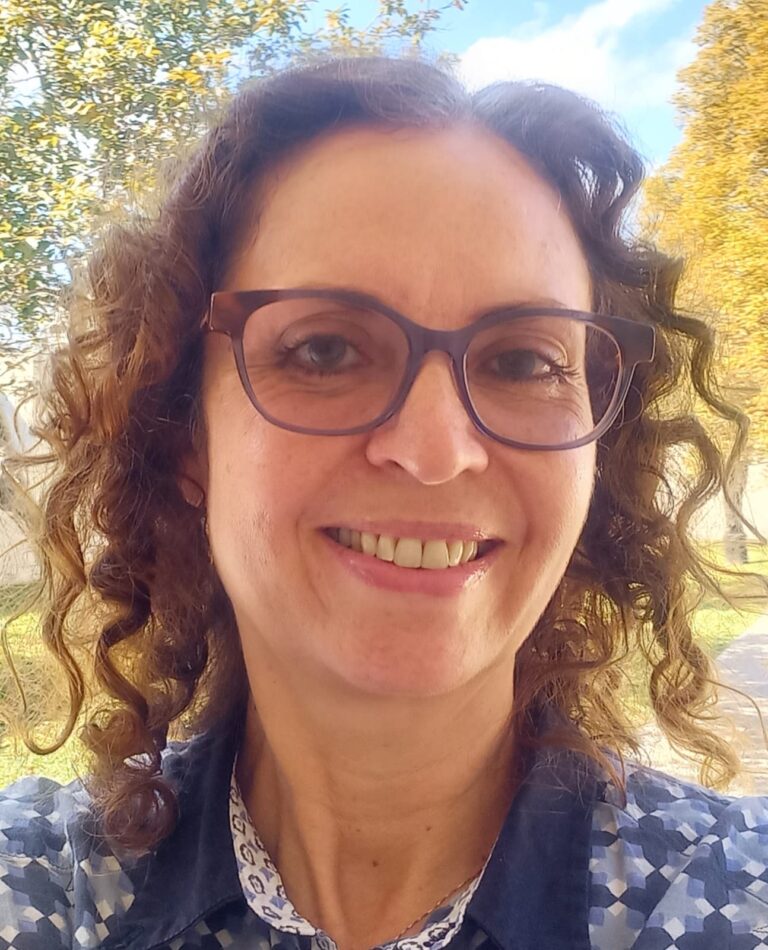
Lara Pozzobon da Costa created the CollabLanguage methodology when she was a Portuguese language faculty at the University of New Hampshire, United States, in 2019-2020. In her first days as an instructor, she imagined an exchange between her American students and Brazilian undergraduate students majoring in English.
The experience as a Portuguese instructor at UNH was perfected with the subjects of the master’s degree in Education that Lara was taking at that university. The course “Second Language Acquisition/Foreign Language Learning” with the prestigious professor and researcher Lina Lee was crucial.
Lara already had a doctorate in Comparative Literature (UERJ, 2002) when she decided to get a master’s degree in Education in the USA. That is why the development of the CollabLanguage platform has been supported by a FAPERGS/SEBRAE Post-Doctoral Program (Doctor Entrepreneur Program – PDEmp). This scholarship program includes a grant for the creation of the platform, which is scheduled to be ready by mid-2024. Before that, the methodology testing will be carried out on the Flip educational application.
Between the doctorate (2002) and her recent second master’s degree (2020), Lara established herself as a producer in Rio de Janeiro, having produced films, plays, film screenings, and the International Disability Film Festival Assim Vivemos, in which audio description was offered for the first time in Brazil. Audio description is an accessibility feature for people who are blind, have low vision, or have difficulty following film subtitles. This unprecedented event occurred in the first edition of the festival, in 2003, in all the exhibited movies. The festival has already had 10 editions.
A few years later, the Accessibility in the Theater project, in Rio de Janeiro, also helped to show the best practices in accessibility and increase the audience of people with disabilities in theater plays. With the pioneering came the responsibility of advocating for the accessibility rights of people with disabilities, which was the most important mark left by the production company Lavoro Produções, which Lara directed from 2001 to 2018.
Lara Pozzobon da Costa created the CollabLanguage methodology when she was a Portuguese language faculty at the University of New Hampshire, United States, in 2019-2020. In her first days as an instructor, she imagined an exchange between her American students and Brazilian undergraduate students majoring in English.

The experience as a Portuguese instructor at UNH was perfected with the subjects of the master’s degree in Education that Lara was taking at that university. The course “Second Language Acquisition/Foreign Language Learning” with the prestigious professor and researcher Line Lee was crucial.
Lara already had a doctorate in Comparative Literature (UERJ, 2002) when she decided to get a master’s degree in Education in the USA. That is why the development of the CollabLanguage platform has been supported by a FAPERGS/SEBRAE Post-Doctoral Program (Doctor Entrepreneur Program – PDEmp). This scholarship program includes a grant for the creation of the platform, which is scheduled to be ready by mid-2024. Before that, the methodology testing will be carried out on the Flip educational application.
Between the doctorate (2002) and her recent second master’s degree (2020), Lara established herself as a producer in Rio de Janeiro, having produced films, plays, film screenings, and the International Disability Film Festival Assim Vivemos, in which audio description was offered for the first time in Brazil. Audio description is an accessibility feature for people who are blind, have low vision, or have difficulty following film subtitles. This unprecedented event occurred in the first edition of the festival, in 2003, in all the exhibited movies. The festival has already had 10 editions.
A few years later, the Accessibility in the Theater project, in Rio de Janeiro, also helped to show the best practices in accessibility and increase the audience of people with disabilities in theater plays. With the pioneering came the responsibility of advocating for the accessibility rights of people with disabilities, which was the most important mark left by the production company Lavoro Produções, which Lara directed from 2001 to 2018.